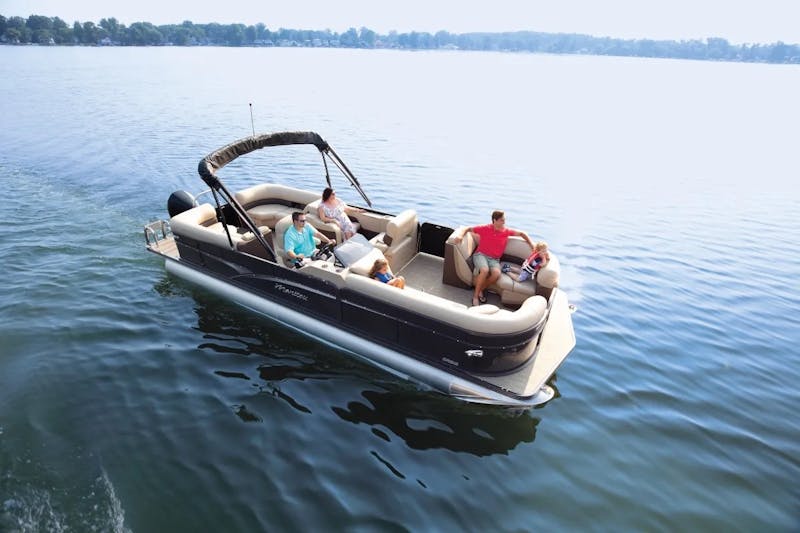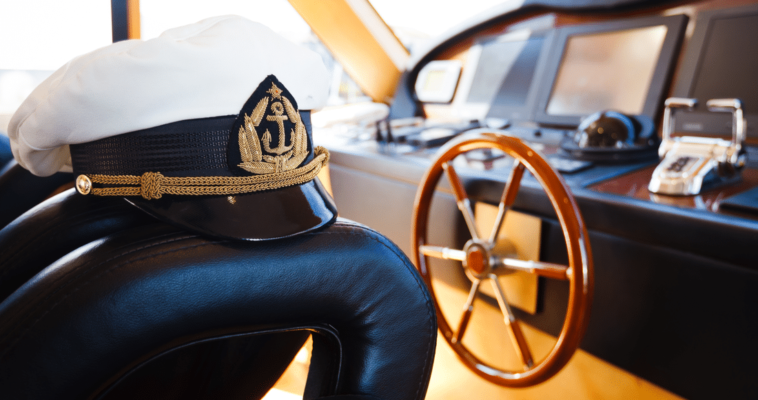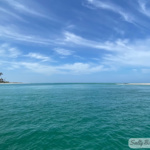If you’ve ever dreamt of navigating the open waters in a pontoon boat, you may find yourself wondering about the legalities involved. The question on your mind is whether or not you need a license to rent one of these delightful vessels. In this article, we will explore the requirements and regulations surrounding pontoon boat rentals, providing you with the information you need to set sail confidently and legally. So, sit back, relax, and let’s embark on this boating adventure together!

Licensing Requirements
When it comes to renting a pontoon boat, understanding the licensing requirements is crucial. Rental companies have certain criteria that need to be met in order to ensure the safety of both the renters and the general public. Let’s take a closer look at the different licensing requirements you may encounter.
Driver’s License
In most cases, having a valid driver’s license is a prerequisite for renting a pontoon boat. This requirement ensures that the person operating the boat possesses the necessary driving skills and knowledge of traffic laws. It also serves as a form of identification for the rental company. So before heading to the marina, make sure to have your driver’s license on hand.
Boating Safety Course
In some regions, completing a boating safety course is necessary in order to legally operate a pontoon boat. These courses provide valuable information on topics such as safety equipment, navigation rules, and emergency procedures. Even if it’s not required for rental purposes, taking a boating safety course is highly recommended, as it will enhance your knowledge and confidence on the water.
Age Restrictions
Alongside licensing requirements, rental companies often impose age restrictions to ensure the safety of both the renters and the vessel itself. The specific age requirements may vary depending on the region and the rental company, but it is common for operators to be at least 18 years old. Some companies may allow younger individuals to operate the boat if they have completed a boating safety course or are accompanied by a parent or guardian. It’s important to familiarize yourself with the age restrictions set by the rental company you choose.
Rental Company Policies
Understanding the policies of the rental company is essential when considering renting a pontoon boat. Each company may have specific requirements and guidelines that need to be followed to ensure a smooth rental experience. Let’s delve into some of the key rental company policies.
Specific Requirements
Rental companies often have specific requirements that must be met before renting a pontoon boat. These requirements may include a minimum age for the primary renter, a security deposit, or even a credit card hold. It’s important to thoroughly review the specific requirements of the rental company you choose to avoid any last-minute surprises.
Liability Waiver
Before renting a pontoon boat, you will likely be required to sign a liability waiver. This document acknowledges that you are assuming responsibility for any potential damages or injuries that may occur during your rental period. It is crucial to carefully read and understand the terms of the liability waiver before signing, as it outlines your obligations and potential risks.
Damage Deposits
Many rental companies require a damage deposit as a form of security against any potential damages to the pontoon boat. The amount of the deposit varies depending on the rental company and the value of the boat. The deposit is usually refunded to you upon the safe return of the boat without any damages. To ensure a smooth process, it is advisable to conduct a thorough inspection of the boat prior to departure and bring any pre-existing damages to the attention of the rental company.
Local Laws and Regulations
Understanding the local laws and regulations is crucial when renting a pontoon boat. Each state or region may have specific rules that govern boating activities and ensure the safety of all waterway users. Let’s explore some of the key local laws and regulations you should be familiar with.
State Regulations
Boating regulations can vary significantly from state to state. It’s important to familiarize yourself with your state’s specific regulations, as they dictate requirements such as speed limits, navigation rules, and safety equipment requirements. These regulations are in place to ensure the safety of everyone on the water and to protect the environment.
Waterway Rules
Local waterway rules provide guidelines on how to navigate and share the water with other boats. It is essential to know the right-of-way rules, how to properly pass other vessels, and the importance of maintaining a safe distance from swimmers, divers, and other hazards present in the water. By following these rules, you can ensure a safe and enjoyable boating experience for yourself and others.
Registration and Documentation
Most states require boats, including pontoon boats, to be registered. This helps in identifying and tracing vessels, ensuring compliance with safety standards, and collecting data on boating activities. Additionally, some regions may also require specific documentation, such as proof of ownership or a boating safety certificate. Research the registration and documentation requirements of your state to ensure compliance before renting a pontoon boat.
Insurance Coverage
Before embarking on your pontoon boat adventure, it’s essential to consider insurance coverage. Accidents happen, and having sufficient insurance coverage can provide peace of mind during your rental period. Let’s explore the different types of insurance coverage you may need to consider.
Personal Insurance
Your personal insurance policies, such as homeowner’s or renter’s insurance, may offer some level of coverage for liability or personal property damage. However, it’s important to review the policy terms and limits to determine if they extend to boat rentals. Contact your insurance provider to discuss your coverage options and any additional coverage you may need.
Rental Insurance
Some rental companies offer insurance coverage options at an additional cost. This coverage typically provides protection against damages to the boat, theft, and liability in case of accidents. While rental insurance is not always required, it can provide added protection and financial security during your rental period. Consider the value of the boat and the risks involved to determine if rental insurance is right for you.
Liability Coverage
Liability coverage is particularly important in case of accidents involving other boats, property, or injuries to third parties. While rental companies may have their own liability coverage, it’s advisable to check the terms and limits of their policy. If necessary, consider obtaining liability coverage through your personal insurance or purchasing additional coverage from the rental company.
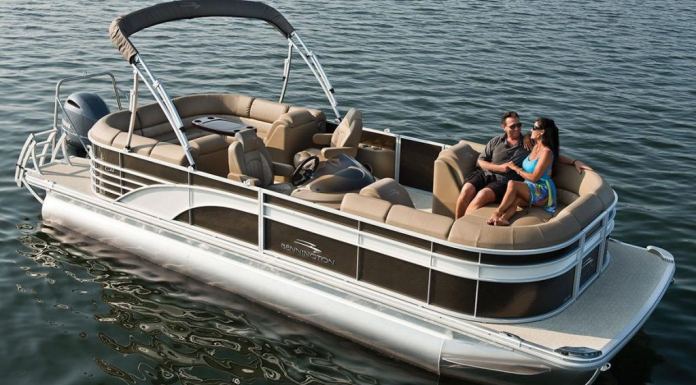
Operational Guidelines
Operating a pontoon boat requires knowledge and understanding of operational guidelines. Familiarizing yourself with boating experience, safety briefings, and navigational rules can enhance your enjoyment and safety on the water. Let’s delve into the key operational guidelines to consider.
Boating Experience
Prior boating experience is not always required to rent a pontoon boat, but it is highly recommended. Understanding the basics of boat handling, navigation, and safety procedures can make your rental experience more enjoyable and reduce the risk of accidents. If you lack experience, consider taking a boating safety course or asking the rental company for a demonstration or brief tutorial.
Safety Briefing
Before setting sail, it is important to receive a comprehensive safety briefing from the rental company. This briefing should cover topics such as boat operation, safety equipment location and usage, emergency procedures, and any specific guidelines related to the pontoon boat you are renting. Pay close attention to this information to ensure your safety and the safety of others on board.
Navigational Rules
Understanding navigational rules is essential for a safe and enjoyable boating experience. Familiarize yourself with rules such as right-of-way, speed limits, and no-wake zones. Additionally, be mindful of designated swimming areas, wildlife habitats, and restricted zones, as violating these rules may result in fines or other penalties. By following navigational rules, you can ensure a smooth and harmonious experience on the water.
Safety Equipment
Ensuring the availability and proper usage of safety equipment is crucial to your safety and the safety of others on the pontoon boat. Make sure to familiarize yourself with the following essential safety equipment.
Life Jackets
Life jackets, also known as personal flotation devices (PFDs), are a vital safety component on any boat. Each person on board should have a properly fitting and Coast Guard-approved life jacket readily accessible. Familiarize yourself with the location and proper usage of the life jackets provided by the rental company. Remember that wearing a life jacket can save lives in case of an emergency.
Fire Extinguisher
Having a fire extinguisher on board is critical to preventing and suppressing fires that may occur on a pontoon boat. Rental companies are required to provide and maintain a properly functioning fire extinguisher on board. Familiarize yourself with its location and operation in case of an emergency. If you notice any issues with the fire extinguisher, notify the rental company immediately.
Navigation Lights
Ensuring the proper functioning of navigation lights is essential, especially when boating during low-light conditions or at night. Rental companies should provide pontoon boats with functional navigation lights, including stern lights, sidelights, and an all-around white light. Familiarize yourself with how to operate these lights and ensure they are in working order before setting sail.
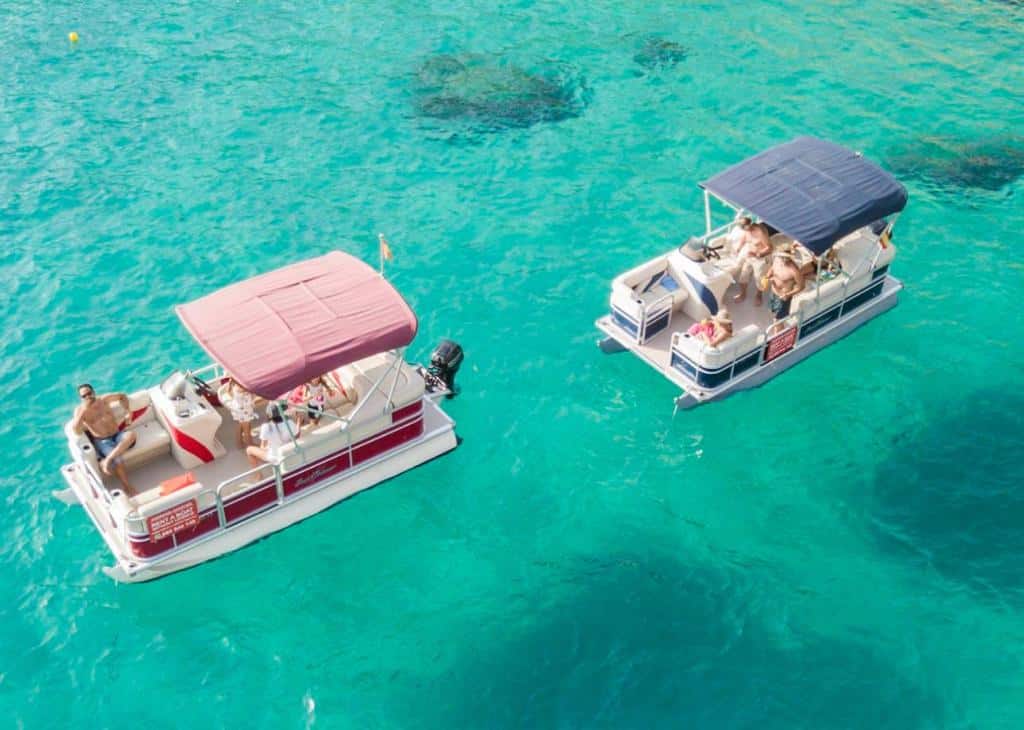
Navigational Considerations
When navigating the waterways, there are several important factors to consider. Understanding the waterways, identifying restricted areas, and adhering to speed limits will help ensure a safe and enjoyable boating experience.
Understanding Waterways
Each waterway has its own characteristics and unique challenges. Some waterways may have shallow areas, shifting sandbars, or submerged hazards, while others may have strong currents or unpredictable weather patterns. Familiarize yourself with the local waterways, including charts, markers, and any potential navigational challenges, to ensure safe and smooth navigation.
Restricted Areas
Many waterways have restricted areas that boaters must be aware of and respect. Restricted areas may include swimming zones, wildlife habitats, or areas designated for specific activities. It is your responsibility to identify and steer clear of these areas to avoid fines or environmental damage. Familiarize yourself with local regulations and maps to understand the restricted areas in your boating area.
Speed Limits
Speed limits exist on most waterways to ensure the safety of all watercraft users. Be aware of posted speed limit signs and adhere to the designated limits. In some areas, different speed limits may apply during different times of the day or in specific zones. When approaching other boats, docks, or swimmers, reduce your speed to prevent accidents and maintain a safe distance.
Environmental Laws
As responsible boaters, it is our duty to protect the environment and preserve the natural beauty of the waterways. Understanding and adhering to environmental laws is crucial when renting a pontoon boat.
Cleanliness of Boat
Maintaining a clean boat is not only aesthetically pleasing but also important for environmental preservation. It is essential to dispose of trash and waste properly and prevent any accidental spills or pollution. Bring garbage bags on board and dispose of waste at designated facilities. Remember, protecting the environment is everyone’s responsibility.
Disposal of Waste
Proper waste disposal is a key aspect of protecting the waterways. Never throw any waste, including food scraps or cigarette butts, overboard. Use designated waste receptacles or, if available, onboard waste storage facilities. Some areas may even require the use of portable toilets or pump-out stations for sewage waste disposal. Research and comply with the waste disposal regulations of the waterways you plan to navigate.
Protecting Wildlife
Waterways are home to diverse ecosystems and abundant wildlife. It is our responsibility to respect and protect these natural habitats. Avoid disturbing wildlife, such as nesting birds or marine mammals, and maintain a safe distance. Never feed wildlife or disrupt their natural behavior. By being mindful of the environment and wildlife, we can all contribute to the long-term preservation of these precious ecosystems.
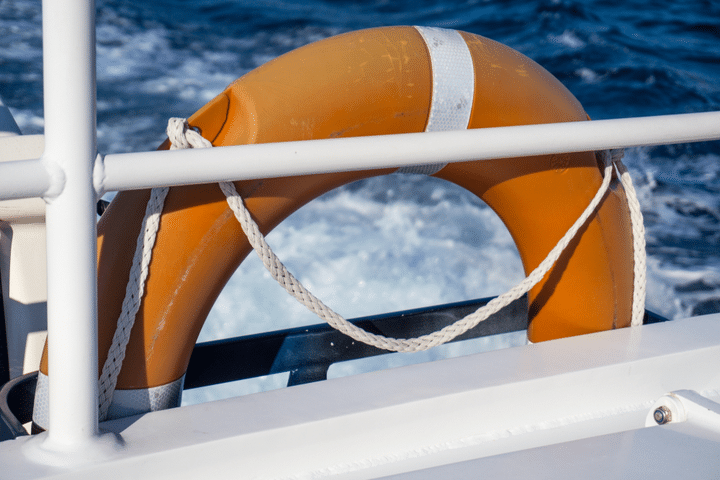
Additional Permits
Depending on the activities you plan to engage in while renting a pontoon boat, there may be additional permits or licenses required. Look into the following permits to ensure compliance with local regulations.
Fishing Permits
If you plan to fish during your pontoon boat rental, familiarize yourself with the fishing regulations of the area. Some regions require a fishing license or permit, which can usually be obtained from the appropriate regulatory agency. Ensure you have the necessary permits to enjoy fishing responsibly and legally.
Alcohol Permits
Boating and alcohol do not mix well. Operating any vessel under the influence of alcohol is not only dangerous but also illegal in most jurisdictions. Before consuming any alcoholic beverages on a pontoon boat, familiarize yourself with the local laws and regulations. Some areas may prohibit alcohol consumption on boats, while others may have specific limits on blood alcohol concentration (BAC) for vessel operators.
Nighttime Navigation Permits
Boating at night presents unique challenges and requires additional precautions. Some waterways may have specific regulations regarding nighttime navigation. Familiarize yourself with the rules and restrictions regarding nighttime boating, including the necessary permits or lighting requirements. Always err on the side of caution and prioritize safety when considering boating after sunset.
Pre- and Post-Rental Inspections
Before and after renting a pontoon boat, conducting thorough inspections is essential to protect your interests and ensure a smooth rental experience.
Vessel Condition Report
Many rental companies provide a vessel condition report that documents any pre-existing damages or wear and tear on the boat. Before departing, carefully review this report and note any discrepancies. It is important to communicate any existing damages to the rental company to avoid being held responsible for them upon return.
Checking for Damages
Before setting sail, conduct a comprehensive inspection of the pontoon boat. Check for any damages, scratches, or malfunctions. Pay close attention to the hull, motor, propeller, and safety equipment. If you notice any issues, notify the rental company immediately to avoid being held accountable for them upon return.
Reporting Issues
During your rental period, if you encounter any mechanical issues, malfunctions, or damages that occur during normal usage, promptly report them to the rental company. This enables the rental company to address the issue promptly, ensuring a safe and enjoyable experience for future renters. Open communication is key to resolving any potential issues and protecting your interests during the rental period.
Renting a pontoon boat can be a fantastic way to enjoy the water and create wonderful memories with friends and family. By understanding and adhering to the licensing requirements, rental company policies, local laws and regulations, insurance coverage, operational guidelines, safety equipment, navigational considerations, environmental laws, additional permits, and pre- and post-rental inspections, you can ensure a safe, enjoyable, and responsible boating experience. So grab your sunscreen, pack a picnic, and embark on a memorable pontoon boat adventure!
